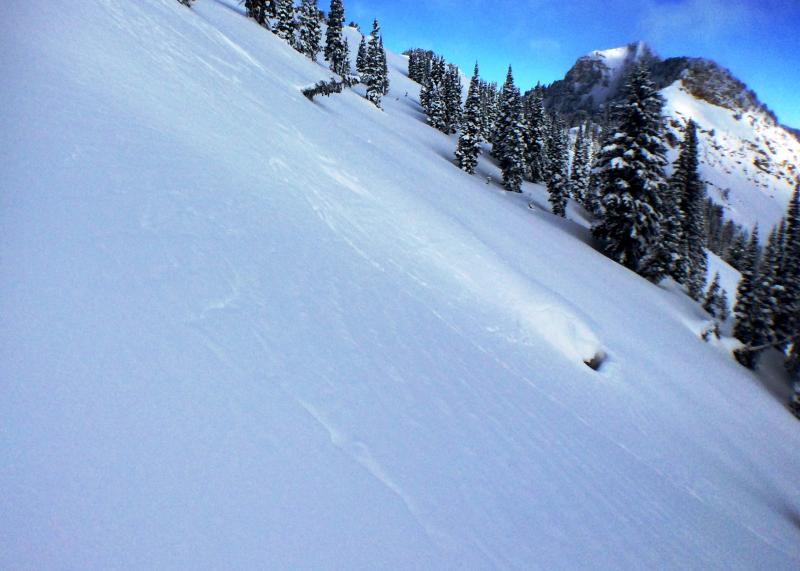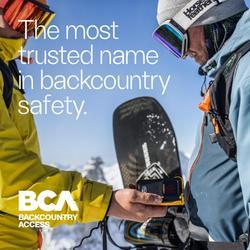The faceted snow from before the storm is now buried over a meter deep in most places I looked above approx. 9,000', with the total new snow from the storm forming a thick right side up slab, going from near pencil hardness at the bottom to fist hardness at the surface. Because the weak layer is now so deep and the slab near the bottom nearing pencil hardness, its going to be considerably more difficult to trigger one of these monsters. However, the classic low probability high consequence scenario was very well illustrated in this area as follows: 1) dug a pit near the top of the ridgeline in George's Bowl and found a deep snowpack (180 cm deep) and was unable to affect the weak layer in any stability tests, this leads one to thinking that stability is good; 2) I walked 50 feet above the pit and collapsed the whole slope while crossing a thinner rocky portion of the slope (low angle so didn't slide, but would have if steeper); walked another 50 feet and could see the natural in Mineral on a similar aspect. This fits into the pattern I saw around Brighton Christmas Eve, where most natural activity was in rocky areas. Danger rating will gradually decrease from considerable to a scary moderate, but its all the same to me, with patience the key for a while yet.
FORECASTER COMMENTS: Again, another excellent observation from Dave Kikkert.




